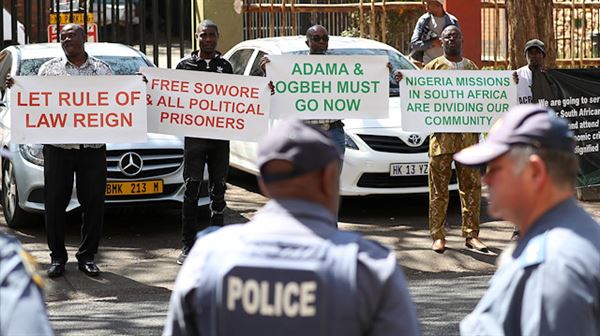Around 100 people were arrested on Wednesday as part of an operation to disperse a group of refugees and asylum seekers who had staged a prolonged si
Around 100 people were arrested on Wednesday as part of an operation to disperse a group of refugees and asylum seekers who had staged a prolonged sit-in near the United Nations refugee agency in Cape Town, South African police said.
The refugees and asylum seekers have been camping outside the offices of the UN High Commissioner for Refugees for weeks, asking to be moved out of South Africa, where they say they do not feel safe after a wave of xenophobic violence.
Local media showed footage of police firing water cannon into the crowd of protesters, some of whom were visibly distressed or had small children strapped to their backs, and removing personal items like clothes, sleeping bags and cooking equipment from the street.
The South African Police Service (SAPS) said in a statement they moved in to evict around 300 people from the area in accordance with a court order.
“About one hundred people have been arrested after they failed to heed the call to disperse,” the statement said, adding that the UNHCR had tried to resolve the impasse without success.
The refugees want to be repatriated to their home countries or moved elsewhere after a spate of deadly riots and attacks in September, which killed at least 10 people and left many foreigners afraid to live in the country.
The violence was targeted at African immigrant populations, sparked reprisal attacks, overshadowed a pan-African economic conference in Cape Town and drove a wedge between South Africa and other nations on the continent, including its other major economy, Nigeria.
Hundreds of people were arrested during the violence, which has flared up periodically in South Africa.
